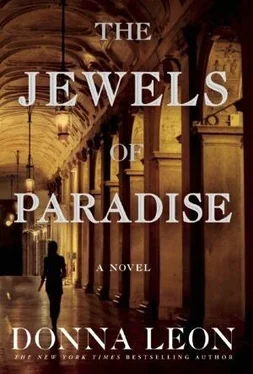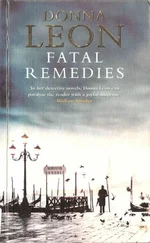Her grandmother had been famous in the family for keeping her memory all her life, and Caterina was the grandchild said most to resemble her. As she read through the information about Steffani, she justified family tradition, for most of the information came back to her as she read: born in Castelfranco in 1654, he was early seen to be a talented singer and musician, choirboy at the Basilica del Santo in Padova from the age of ten. A nobleman from Munich was seduced by the beauty of his voice and took him home with him, where he had tremendous success as a musician and a composer. After two decades, he moved to Hanover, where he had more of the same. He seemed to drift away from music while he devoted himself to politics, working for the Catholic cause in a country whose rulers had decided to turn it Protestant.
“Ernst August,” she said out loud as she came upon reference to the duke of Hanover: yes, she remembered him. Here the writer of the article opened a parenthesis (and explained that Ernst August’s people built him the most sumptuous opera house in Germany, not to delight him but to attempt to keep him from taking his yearly, and ruinously expensive, trips to Carnevale in Venice). His son, Georg Ludwig, was to become George I of England. Like most people trained in research, Caterina willingly gave in to its intoxication and sent Google running off after Georg Ludwig: wasn’t there some scandal about his wife? Soon enough, there she was, the beautiful Sophie Dorothea, the greatest beauty and most desirable marital catch of the era; married at sixteen to Georg Ludwig (another parenthesis explained that they were first cousins) before being caught in adultery, divorced, and imprisoned for more than thirty years until her death. It all made fascinating reading, but it didn’t tell her much about Steffani.
Caterina went back to the original window and continued to read about Steffani’s life after his virtual abandonment of music. He shuttled about endlessly on diplomatic missions here and there. He spent six years in Düsseldorf, concerned chiefly with political and ecclesiastical matters, producing his last three operas there. He appeared to have prevented a war between the Pope and the Holy Roman Emperor, both of them embroiled in the War of the Spanish Succession, and who remembered what that was all about? He had spent a good deal of his nonmusical life attempting to persuade various North German rulers to return to the arms of Holy Mother Church. She looked up from the computer and let her eyes trail to the facade of the church of Santa Maria della Fava. Suddenly her soul was enwrapped by Vivaldi, an aria for Juditha triumphans , what were the words? Transit aetas / Volant anni / Nostri damni / Causa sumus. How gloriously simple the score was: mandolin and pizzicato violin, and a single voice warning us that time passes, the years fly by, and we are the cause of our own destruction. What better message to give to the leaders of those empty churches? We are the cause of our own destruction.
“Would you like another half hour, Signora?” the young Tamil at the cash register called to her. “Time’s up in five minutes, but you can stay online for another half hour for two euros.”
“No, that’s fine. Thank you for asking, though,” she said and resisted the urge to look for the aria being sung on YouTube. Steffani moved back to Hanover in 1709, but there was no further mention of his music, only travel and political involvement. Almost no more music. Was genius painful, she wondered? Did it, at some point, simply cost too much for the spirit to continue to create? As she watched, the screen went blank, taking with it Steffani, his music, the church he served, and all of his desires to restore that church to her former power. She picked up her bag, thanked the young man at the desk, and started toward the library.
It took her no more than ten minutes to get there; to pass in front of the two caryatids and into the lobby of the Marciana was to pass from the constant crowding of the Piazza into the calm tranquillity that thoughts and the books that contained them were meant to give. She stood for a moment, as if she were a diver waiting to decompress, and then she approached the guard and mentioned Ezio’s name. He smiled and waved her through an apparently deactivated metal detector and into the foyer of the library.
One of the guards must have phoned him, for by the time Caterina got to the head of the stairs, Ezio was there, coming toward her with outstretched hands. There were lines around his eyes, and he seemed both thinner and shorter than he had been the last time she saw him, almost a decade ago. But the brightness and the smile were the same. He wrapped her in a tight hug, pushed her free of him, kissed her on both cheeks, and then they took turns saying all of those sweet things that old friends say when meeting again after many years. All of her sisters were fine, his kids were growing, and what was it she wanted him to do?
She explained the need to find information about a Baroque composer for a research project she was doing for the Foundation, of which he had heard, though vaguely. There was no need to explain more than that to him. He said she was welcome to use the stacks as much as she liked, then excused himself and said he’d go and organize a reading card for her as a visiting scholar.
“No,” he said, turning back toward her. “Let me take you up to the stacks. You can get an idea of what’s there.” When she began to protest, he refused to listen, saying, “You’re a friend of mine, so don’t worry about the rules. Once I get you the card, you have access to almost everything.” Without waiting for her answer, he set off to the right and led her into the long gallery she recalled from her student days. The marble floor might have served as a chessboard for two opposing tribes of giants; there were far more than sixty-four squares, and a giant could stand on each of them. The glass viewing cases displayed manuscripts, but they passed through so quickly she could distinguish nothing more than the even lines of script and the large illuminated letters on some pages. The enormous globes of the earth appeared to be the same, as did the outrageous vaulted ceiling without an inch of empty space. Why were we Venetians so excessive, she wondered? Why did there always have to be so much of everything, and all of it beautiful? She glanced out the windows and had a momentary sensation that the Piazza was hurrying past her stationary self.
She followed him from the gallery, like Theseus on his way to slay the Minotaur, thinking that she, too, should leave a trail of string behind. Turn and turn and turn about, and soon she had no idea where they were. These were inner rooms, so she could not orient herself by looking out and seeing Saint Mark’s Basilica or the bacino .
At long last, they entered a room that had a row of windows, and beyond them she could see the long expanse of windows on the Palazzo Ducale across the Piazza. “How do you find anything?” she asked when Ezio pointed to a wall of shelves.
“Do you mean a room or a book?” he asked.
“Both. I’d never find my way out of here. And how do I know what’s here?” she asked, looking around for the computer terminals.
Smiling a broad smile, Ezio led her over to a shoulder-high wooden cabinet the front of which was entirely filled with small drawers. “Do you remember?” he asked, patting the top of the cabinet. “I saved it,” he said, obviously boasting.
“ Oddio ,” she exclaimed. “It’s a card catalogue.” When had she last seen one? And where? She approached it as a true believer would approach a relic. She reached out and touched it, ran her hand along the top and side, slid her finger under a flange and pulled a drawer out a few centimeters, then slid it silently back in place. “It’s been a decade. More.” Then, in a conspiratorial voice, she said, “I love them. They’re so full of information.” Then, lower still, “What did you do?”
Читать дальше












